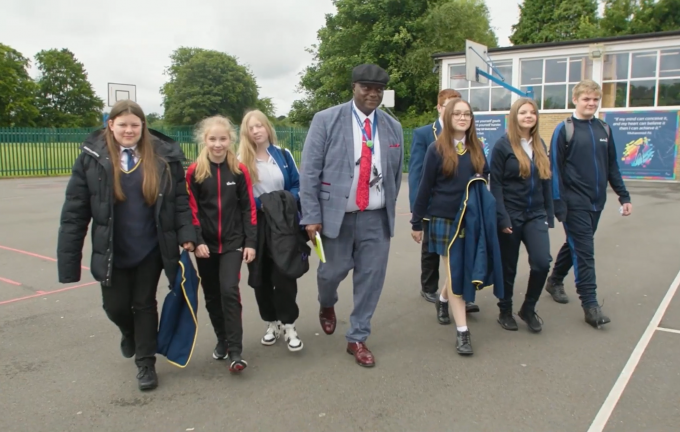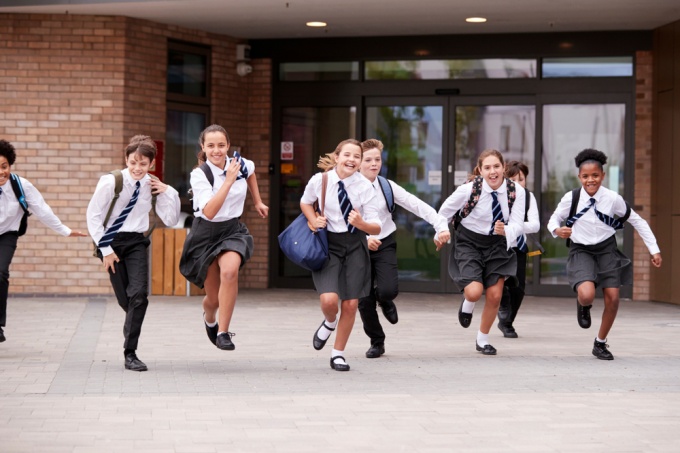At times children and young people push against boundaries, hurt or bully others, are disrespectful or act in other socially unacceptable ways which break school rules.
When this happens there needs to be a response from the adults, with clear next steps on how children and young people can repair the situation and take responsibility for the impact of their behaviour, whilst learning the importance of boundaries and accountability in the process. It's important that everyone involved understands that safety is upheld by addressing difficulties when boundaries are crossed. This will facilitate learning that will prevent them from occurring again. For some children and young people this process will need to be repeated more often.
At the heart of Thrive's approach is the belief that discipline is a form of education, an opportunity to instil strong moral values, empathy towards others, and a sense of responsibility. Contrary to punitive measures, Thrive champions the transformative power of relationships in changing behaviour.
The negative consequences of punitive measures
Thrive warns against the negative consequences of punitive measures, such as isolation. Isolating a child or young person can damage trust, create fear, and instil a sense of shame. The message conveyed can be one of rejection and an inability to support the child or young person’s emotions effectively. Ultimately, punitive measures can be ineffective and even damaging – It’s hard for children to listen to why they need to change their behaviour if they feel disconnected and misunderstood.
The neuroscience behind behaviour: Leveraging positive relationships for lasting change
Through our understanding of neuroscience, we know that it’s possible to foster sustainable behaviour change in children and young people. The key lies in understanding how neuronal pathways adapt, and their remarkable ability to do so quicker through positive relationships with others.
By centring our focus on building trust and rapport with the child or young person, we tap into a fundamental aspect of sustainable behaviour change. Neuroplasticity, the brain's capacity for 're-wiring' through experiences, plays a pivotal role in this process. This phenomenon allows children and young people to form healthier habits, responses, and actions.
"In essence, our approach is rooted in the science of connection—a deliberate effort to create positive experiences that facilitate the rewiring of neuronal pathways." Rose Webb. Policy, Practice and Innovation Lead, Thrive
Top tips for addressing behaviour
Discipline as teaching: Thrive defines discipline as 'to teach', fostering a deeper understanding of one's behaviour and responses, in order to do things differently next time.
Relationships drive change: Recognising that relationships are pivotal, Thrive prioritises 'time-in' with an adult over punitive measures. Building trust through predictability, routine, and respect, adults help children understand their feelings, responses and behaviour.
Age-appropriate consequences: Thrive advocates for consequences that align with the child's developmental stage, emphasising that understanding cause-and-effect is crucial for effective behaviour change.
Impact of 'Time-In' vs. 'Time-Out': While 'time-out' methods such as isolation booths result in minimal impact, 'time-in' sessions provide an opportunity to teach, build relationships, and develop coping strategies.
Shifting from punishment to understanding: By replacing 'time-out' with 'time-in,' Thrive believes in the potential to teach, strengthen relationships, and equip children with the tools to manage their behaviour effectively.
Fostering positive connections through 'time-in' sessions provides a more effective and compassionate approach to addressing challenging behaviours, contributing to a culture where punitive measures to bullying become obsolete.
In the journey towards creating nurturing environments for children and young people, Thrive champions understanding, connection, and the transformative power of positive relationships.
Ready to elevate your understanding of the neuroscience behind behaviour so that you can better support children and young people?
Enrol in 'Positive Behaviour Management,' our new 6-hour short course priced at just £187 exc. VAT. Gain insights into the causes of poor behaviour, the latest thinking on different types of behaviour – and critically what you can do about it.
Ready to implement a whole school or college approach to mental health and wellbeing?
Thrive offers a trauma-informed, whole school approach to improving the mental health and wellbeing of children and young people. We do this by giving educators access to DfE-accredited training and an award-winning profiling and action-planning tool, Thrive-Online (TOL). Thrive's training courses and TOL help settings to better understand the needs of young people, provide targeted support, and measure (then report on) their impact. To learn more, book a Discovery Call with a member of our team.





_680.jpg)
